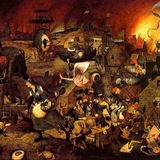group-telegram.com/politkremlin/33550
Last Update:
#внешэконом
США вынуждают Россию продать за бесценок мажоритарную долю в сербской NIS. Такой расклад вырисовывается после сегодняшнего заявления Вучича о том, что он хочет обсудить с Путиным новый газовый контракт и американские планы ввести санкции против "Нефтяной индустрии Сербии" (NIS).
Американцам невыгодно душить полностью экономику Сербии, которую они упорно вовлекают в евроатлантические структуры. Слишком сильное давление окажет обратный эффект - Белград попросится в БРИКС, может быть, даже пригласит к себе российских военных, создаст хоть какие-то, но проблемы для реализации стратегии США на Балканах.
Кроме того, Вашингтон пользуется отрезанностью Сербии от морей и зависимостью от транзита нефти и газа по территории Хорватии, которая сразу же его прикроет после отмашки американского Минфина.
Поэтому анонсированные за 2 недели санкции против "Нефтяной индустрии Сербии" призваны заставить "Газпром" продать подешевле компанию правительству, потеряв 56%-ную долю в крупнейшей нефтедобывающей компании Сербии.
https://www.group-telegram.com/us/politkremlin.com/33538
BY Капитал
Warning: Undefined variable $i in /var/www/group-telegram/post.php on line 260
Share with your friend now:
group-telegram.com/politkremlin/33550
